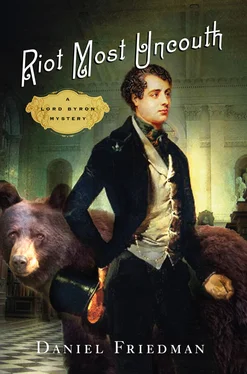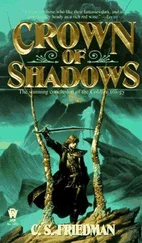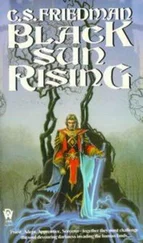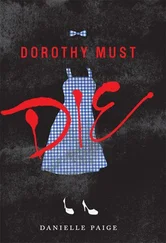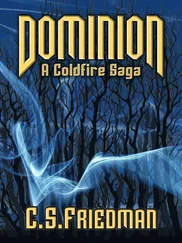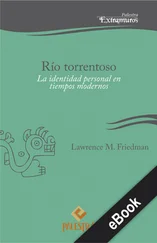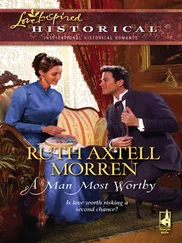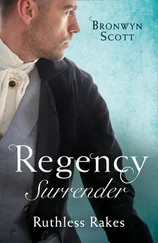Daniel Friedman - Riot Most Uncouth
Здесь есть возможность читать онлайн «Daniel Friedman - Riot Most Uncouth» весь текст электронной книги совершенно бесплатно (целиком полную версию без сокращений). В некоторых случаях можно слушать аудио, скачать через торрент в формате fb2 и присутствует краткое содержание. Год выпуска: 0101, ISBN: 0101, Издательство: St. Martin, Жанр: Исторический детектив, на английском языке. Описание произведения, (предисловие) а так же отзывы посетителей доступны на портале библиотеки ЛибКат.
- Название:Riot Most Uncouth
- Автор:
- Издательство:St. Martin
- Жанр:
- Год:0101
- ISBN:9781250027580
- Рейтинг книги:5 / 5. Голосов: 1
-
Избранное:Добавить в избранное
- Отзывы:
-
Ваша оценка:
- 100
- 1
- 2
- 3
- 4
- 5
Riot Most Uncouth: краткое содержание, описание и аннотация
Предлагаем к чтению аннотацию, описание, краткое содержание или предисловие (зависит от того, что написал сам автор книги «Riot Most Uncouth»). Если вы не нашли необходимую информацию о книге — напишите в комментариях, мы постараемся отыскать её.
Riot Most Uncouth — читать онлайн бесплатно полную книгу (весь текст) целиком
Ниже представлен текст книги, разбитый по страницам. Система сохранения места последней прочитанной страницы, позволяет с удобством читать онлайн бесплатно книгу «Riot Most Uncouth», без необходимости каждый раз заново искать на чём Вы остановились. Поставьте закладку, и сможете в любой момент перейти на страницу, на которой закончили чтение.
Интервал:
Закладка:
“Yes, that happens when murderers kill by disemboweling. He must have slashed open the lower intestine whilst digging with his knife in Professor Pendleton’s guts.”
I shuddered. “That is a fact I could have lived without knowing.”
Knifing puffed up his narrow chest and pointed an emphatic finger at me. “You came here of your own volition, without any prompting or invitation. You appeared unbidden as well at the scene of Felicity Whippleby’s murder. If, as you contend, you have no connection to these killings, then you have no reason for involving yourself with me or my investigation. Your presence here is an unseemly expression of your curiosity, so if you cannot endure the unpleasantness, you are welcome to leave me alone.”
“I just don’t see how the stink of Pendleton’s blood and shit are at all relevant.”
“Blood and shit are not relevant,” Knifing said, making a steeple of his fingers and assuming a lector’s pose. “The important fact here is that this alleyway smells like piss.”
“You mock me,” I said.
“Even a man of my assiduous discipline and impeccable manners could scarce resist such a ripe and easy target for ridicule, but on this matter I am utterly without pretense. The smell of urine, pungent though it may be, would not ordinarily be discernible over the stink of this corpse, or of all this blood, unless said urine was present in large quantities. Observe, also, the water stains upon the walls around this alley, suggesting that the buildings here are regularly leaked upon from waist-high spigots.”
“I still fail to see the importance of this.”
“Despite the benefit of your finely honed poet’s sense, and despite the advantage of having twice as many eyes as I’ve got, your observational failure comes as no surprise to me. I have already learned that, though this establishment serves as many as twenty concurrent patrons on a busy night, it is equipped with only a single outhouse. It’s evidently the custom among the bar’s regulars to relieve themselves in this alleyway. That gate was not locked last night, nor was Pendleton carried over it. He most likely stepped out here, of his own volition, to see to his functions. The killer took that opportunity to empty out all the stuffing in the unfortunate gentleman’s torso.”
I thought about that. Knifing continued:
“Now, there are only a few taverns in Cambridge, and you’ve been a local resident and a drunkard for quite some time; certainly for long enough to become familiar with this place and its accommodations. Therefore, you should have known, and probably did know, that this alley is left open as a public urinal.”
He was right. Only a few evenings earlier, my weak foot had rolled sidewise on one of the wet, slippery cobblestones in this very alley as I’d leaned against the wall. Staggering, I’d pissed all over the front of my trousers. How could I have believed the gate was locked? My mouth felt very dry, and I fumbled in my waistcoat for my flask. “I was not trying to mislead you,” I said.
“I don’t believe you were. I simply think your faculties as an observer are substandard, your deductive capabilities are undeveloped, and your alleged gifts as a poet are of limited applicability to the task of hunting killers. Among criminal investigators, Lord Byron, you’re the worst I’ve ever seen.”
I cast my eyes downward and noticed what looked like part of a sticky boot-print at the edge of the pool of blood.
“Well, here is a clue you missed, perhaps due to the disadvantage of having half as many eyes as me. Unlike your fake scuff mark, this may lead us to the killer.”
“No,” said Knifing. “The foot to match that print belongs to Fielding Dingle.”
I shuddered as if I’d been struck; Knifing had disarmed me of the last advantage I held over him. “Oh, so you know already, of Mr. Dingle’s arrival?”
“Yes. And let me revise my earlier statement. Now that he’s in Cambridge, you are only the second-worst investigator in town.”
Grasping for any form of solace, I decided this was a backhanded compliment. “Why is he here, anyway, if you’re investigating the murders?” I asked.
Knifing shrugged. “The man who hired me mentioned no one else. I suppose he sent Dingle down so we could collaborate, or so we could each confirm the other’s findings. Whatever the reason, it makes no difference. Dingle will second my conclusion. He has neither the professional credibility nor the intellectual capacity necessary to persuasively disagree with me.”
“Even if you are wrong?”
Knifing laughed his wicked laugh again. “Especially if I’m wrong. When I am wrong, I am at my most compelling. You should keep that in mind, in the event I decide to accuse you of the murders.”
As I tried to formulate a retort, Angus came charging down the alley with the Professor in tow. Both of them were panting loudly and clearly excited.
“Get that creature out of my crime scene!” Knifing shouted.
“There’s been another one,” Angus said.
“Another bear?” I asked.
“Another murder,” Knifing said.
“More than a murder,” Angus said, gulping mouthfuls of air, like a hairy grouper flopping upon the deck of a fishing boat. “There’s been a massacre.”
Chapter 20
Man, being reasonable, must get drunk;
The best of Life is but intoxication:
Glory, the Grape, Love, Gold, in these are sunk
The hopes of all men, and of every nation;
Without their sap, how branchless were the trunk
Of Life’s strange tree, so fruitful on occasion!
- Lord Byron, Don Juan, canto 2It was only when I began preparing this account of the Cambridge murders, nearly a decade after the relevant events occurred, that I finally arranged to meet with Lord Whippleby, the father of the first victim. His fortunes were in decline even before his daughter’s death, which was why he had been trying to marry her to Leif Sedgewyck. After the murder, his finances had unraveled entirely; he’d become too despondent to tend to his affairs. I found him residing in cramped London apartments, having leased his lands and his ancestral manse to better-situated tenants.
“So,” he said as I entered his parlor. “The poet has come, at last, to pay me a visit.” His voice was like a sheet of sandpaper being drawn across a velvet curtain.
“I’m really surprised we haven’t encountered one another before, at some function or other,” I said.
His laugh was angry and hollow. “I don’t attend many social events anymore, Lord Byron. People find my company unpleasant. They believe I am quite mad.”
Whippleby’s flesh sagged from his face in loose folds, and his rheumy eyes were set deep in dark-purple sockets. He scratched at the white rats’ nest of hair upon his scalp with thin, spidery fingers. Everything about him seemed dried out, as if he’d wept away all his body’s vital fluids.
“People believe you’re mad as well, of course,” he said. “But your kind of lunacy is so very entertaining, and mine is merely the madness of an old man racked by grief and loneliness.”
“I am writing a book about the Cambridge murders, and I have come to ask if you have any thoughts to contribute.”
“My daughter’s death was a kind of entertainment to you, and now you’ve come to document my suffering so that you can share your depraved amusement with an adoring audience.”
I didn’t say anything. He smacked his lips a couple of times to work up enough saliva to spit at me. He failed to do so, and cursed with frustration. “I spent years and no small amount of money trying to establish your guilt or complicity in those crimes,” he said.
“We captured your daughter’s killer,” I said. “His punishment was death.” This was not a lie, exactly, but the statement contained a significant omission.
Читать дальшеИнтервал:
Закладка:
Похожие книги на «Riot Most Uncouth»
Представляем Вашему вниманию похожие книги на «Riot Most Uncouth» списком для выбора. Мы отобрали схожую по названию и смыслу литературу в надежде предоставить читателям больше вариантов отыскать новые, интересные, ещё непрочитанные произведения.
Обсуждение, отзывы о книге «Riot Most Uncouth» и просто собственные мнения читателей. Оставьте ваши комментарии, напишите, что Вы думаете о произведении, его смысле или главных героях. Укажите что конкретно понравилось, а что нет, и почему Вы так считаете.
